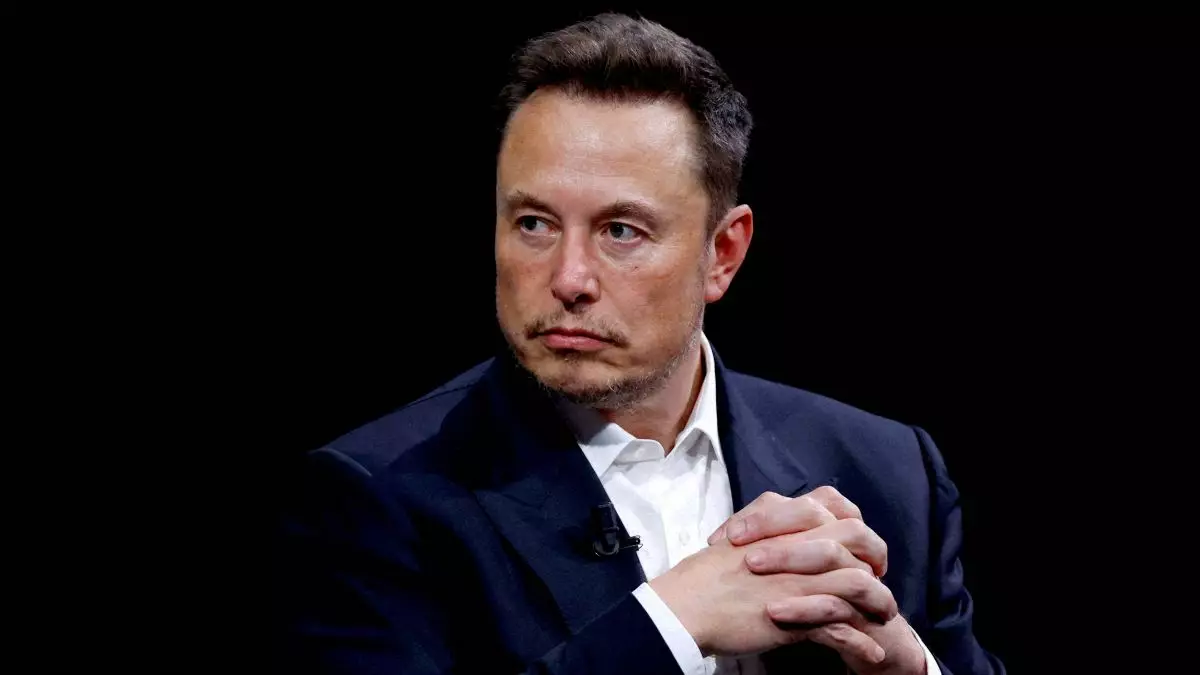Elon Musk, the billionaire entrepreneur known for his high-profile ventures such as Tesla and SpaceX, is once again at odds with the U.S. Securities and Exchange Commission (SEC). Following the SEC’s recent announcement regarding sanctions against him, the situation raises significant questions about compliance, accountability, and the ongoing relationship between high-profile business figures and regulatory bodies.
The crux of the issue lies in Musk’s conspicuous failure to attend a court-ordered testimony pertaining to his $44 billion acquisition of Twitter. The SEC’s motion filed to a San Francisco federal court highlights contrasting narratives between Musk’s legal team and the regulator, making it imperative to dissect the motivations and implications surrounding this unfolding legal saga.
Allegations of Contempt
The SEC alleges that Musk’s decision to skip the testimony was delivered only three hours before its scheduled time, a claim they argue exemplifies a lack of respect for the court’s authority. As the chief technical officer of SpaceX, Musk’s attendance at the launch of the Polaris Dawn mission was cited as his reason for absence. However, the SEC contends that Musk would have been aware of the mission’s schedule well in advance—raising suspicions about whether his actions were a strategic avoidance maneuver.
The SEC’s lawyer, Robin Andrews, characterizes Musk’s attempt to justify his absence as “gamesmanship,” suggesting it is part of a broader strategy to circumvent regulatory scrutiny. The legal contention draws attention to the ethical obligations of public figures and the significance of transparency in corporate governance. Such allegations not only tarnish Musk’s credibility but also open the door for judicial reprimand, which could have far-reaching effects on his business enterprises.
Musk’s Response: An Emergency Justification?
In response to the SEC’s claims, Musk’s lawyer, Alex Spiro, described the sanctions as excessive and unwarranted. He insists that Musk’s absence was due to an unforeseen emergency concerning the launch, rather than any intention to evade testimony. This defensive posture illustrates an acute awareness of public perception and the potential reputational damage stemming from regulatory conflicts.
Spiro’s assertions compel us to consider the chaotic nature of operating a colossal company like SpaceX. With missions being time-sensitive and holding the lives of astronauts in the balance, it is plausible to argue that Musk’s immediate involvement in such operations can sometimes override regulatory obligations. Nonetheless, the underlying question remains—does this effectively excuse him from complying with SEC requirements?
This legal confrontation between Musk and the SEC sheds light on the larger dynamics at play between influential figures and regulatory bodies. Musk, who has repeatedly accused the SEC of harassment, has a contentious history with the agency, fueled by prior lawsuits and settlements concerning his social media activities and Tesla’s corporate governance.
The ongoing probe into Musk’s acquisition of Twitter places additional scrutiny on his past behaviors, particularly regarding his disclosures to investors. Critics argue that his delayed public notification about accumulating Twitter stock raises significant concerns about market manipulation and the necessity for strict enforcement of securities regulations. By failing to disclose his 5% ownership, which is mandated by law, Musk’s actions could set a concerning precedent for compliance in the financial world.
As Musk prepares for the rescheduled testimony on October 3, the future of this legal dispute remains uncertain. While his legal team argues for a reconsideration of the SEC’s position, the regulator appears resolute in pursuing accountability. The outcome of this confrontation will not only determine Musk’s liabilities but also reinforce the notion of regulatory compliance for public figures and corporations.
As this multifaceted dispute unfolds, it underscores the complexities of oversight in a rapidly evolving technological landscape, where business leaders can operate at the intersection of innovation and regulatory compliance. The implications of Musk’s case may reverberate beyond his personal businesses, potentially influencing the regulatory environment for tech giants and serving as a cautionary tale about the obligations that accompany wealth and power in the corporate realm.


Leave a Reply